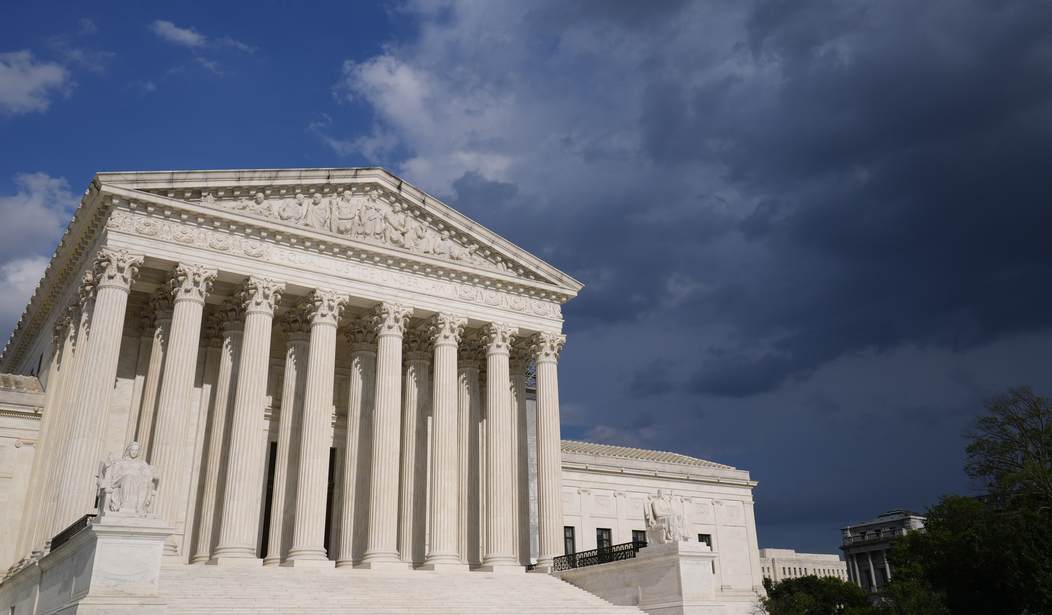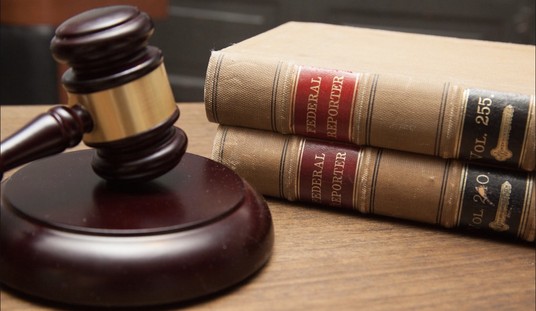The Supreme Court is already guaranteed to hear at least one Second Amendment-adjacent case in the fall term, but there several other cert requests awaiting the nine justices when they return from their summer recess, including one newly-filed petition from Pennsylvania Attorney General Michell Henry asking the Court to declare young adults have no right to keep and bear arms.
Henry filed the cert petition in Paris v. Lara after a three-judge panel on the Third Circuit Court of Appeals ruled that Pennsylvania's law forbidding 18-to-20-year-olds from openly carrying firearms during a declared state of emergency violated their Second Amendment rights. As the appellate court noted, Pennsylvania doesn't issue concealed carry licenses to 18-to-20-year-olds, so open carry is virtually the only way that adults under the age of 21 can exercise their right to bear arms. And at the time the lawsuit was filed, Pennsylvania had been operating under declared states of emergency for about three years, which meant under-21s had no way to lawfully carry a handgun for self-defense or any other lawful purpose.
In her petition, Henry claims the Third Circuit got it all wrong, and prohibiting young adults from exercising their right to keep and bear arms is just part of the national tradition of gun ownership in the United States.
All 50 states and the federal government have gun-safety laws imposing minimum age requirements on the ability to acquire, possess, and carry firearms. As the panel dissent emphasized here, “there is no dispute that there is some age threshold before which the protection of the Second Amendment does not apply.” “The * * * question in this case * * * is where does that age threshold lie?”
Historically, the answer was age 21. From the time of the Founding, through Reconstruction and most of the 20th century, anyone under 21 was considered a minor. This common law threshold was codified in our Nation’s gun laws beginning in the 1850s, when legislatures sought to address the then emerging danger of firearm violence by minors—a discrete problem the Founding generation did not confront. Between 1856 and 1897, 20 jurisdictions enacted laws specifically curtailing the gun rights of under-21-year-olds—most of which were significantly more restrictive than the Pennsylvania law under review here.
The Third Circuit panel that decided Lara heard that same argument from Pennsylvania attorneys, but found it completely without merit. Citing the Supreme Court's decision in Heller, the panel reminded the state that “the people … refers to a class of persons who are part of a national community or who have otherwise developed sufficient connection with this country to be considered part of that community.”
The Court also explained that, like other references to “the people” in the Constitution, “the term unambiguously refers to all members of the political community, not an unspecified subset.” Accordingly, there is “a strong presumption that the Second Amendment right …belongs to all Americans.”
But what about Pennsylvania's contention that for most of U.S. history, those under the age of 21 were considered minors? The Third Circuit panel agreed that was the case, but called the AGs argument "untenable" as it applies to under-21s today.
Notwithstanding the legal status of 18-to-21-year-olds during that period, however, the Commissioner’s position is untenable for three reasons. First, it supposes that the first step of a Bruen analysis requires excluding individuals from “the people” if they were so excluded at the founding. That argument conflates Bruen’s two distinct analytical steps. Although the government is tasked with identifying a historical analogue at the second step of the Bruen analysis, we are not limited to looking through that same retrospective lens at the first step. If, at step one, we were rigidly limited by eighteenth century conceptual boundaries, “the people” would consist of white, landed men, and that is obviously not the state of the law.
Second, it does not follow that, just because individuals under the age of 21 lacked certain legal rights at the founding, they were ex ante excluded from the scope of “the people.” As then-Judge Barrett explained, “[n]either felons nor the mentally ill are categorically excluded from our national community.” But “[t]hat does not mean that the government cannot prevent them from possessing guns. Instead, it means that the question is whether the government has the power to disable the exercise of a right that they otherwise possess.”
Third, consistency has a claim on us. It is undisputedthat 18-to-20-year-olds are among “the people” for otherconstitutional rights such as the right to vote (U.S. Const. art.I, § 2; id. amend. XVII), freedom of speech, peaceable assembly, government petitions (id. amend. I), and the right against unreasonable government searches and seizures (id.amend. IV). As we recently observed in Range, there is “no reason to adopt an inconsistent reading of ‘the people.’” Indeed, wholesale exclusion of 18-to-20-year olds from the scope of the Second Amendment would impermissibly render “the constitutional right to bear arms in public for self-defense … ‘a second-class right, subject to an entirely different body of rules than the other Bill of Rights guarantees.’”
Here's an honest question for Michelle Henry: would she ever, even for a moment, consider defending a Pennsylvania law that prohibited women, non-property owners, or anyone other than white guys from owning or carrying a gun? I certainly hope her answer would be a quick and resounding "of course not", but if that is the case, then why is she defending a law that prohibits young adults from lawfully carrying a firearm for self-defense based on the argument that back in the day under-21s were considered minors and therefore weren't a part of the political community?
Young adults are still adults, and the Third Circuit got it right when the panel ruled that they're just as entitled to exercise their Second Amendment rights as those of us who've reached (or are long past) the age of 21. The Supreme Court doesn't need to grant cert here. By rejecting Pennsylvania's appeal the justices can send a signal to lower courts across the country that prohibiting 18-to-20-year-olds from keeping or carrying firearms for self-defense or other lawful purposes is a no-go as far as the Constitution is concerned, and given the sound logic displayed by the Third Circuit panel, that's exactly what I expect the Court will do when the justices take up Henry's cert petition this fall.









